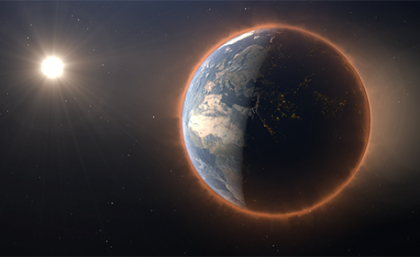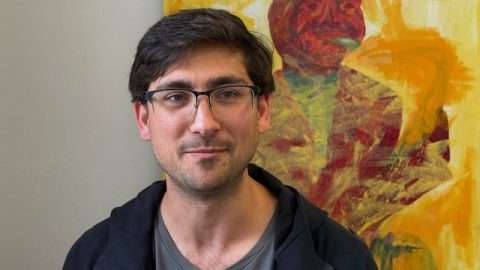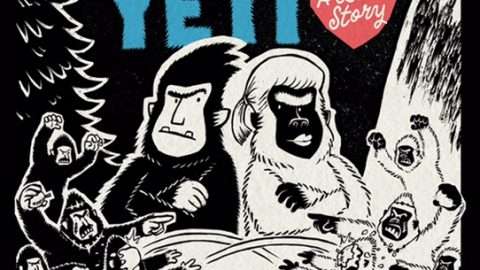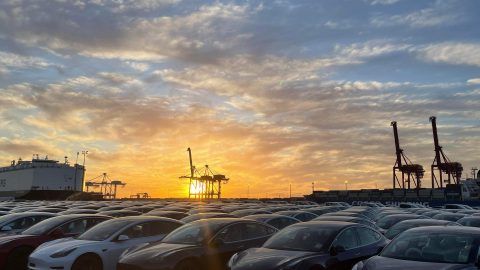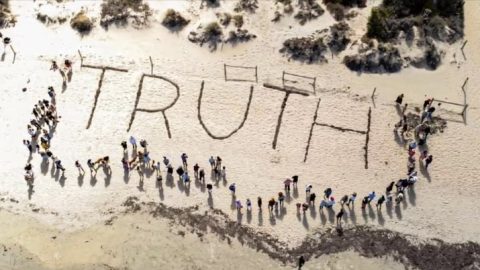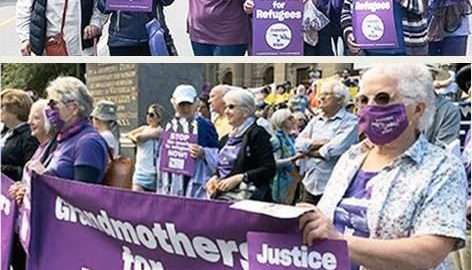Ballumb Ambul Ngunnawal and Ngambri yindamarra. Ngadu – yirra bang marang.
In the language of my people, the Wiradjuri –
I pay my respects to the Ngunnawal and Ngambri people – and honour their custodianship and care for country.
And I extend that respect to all Aboriginal and Torres Strait Islander people here from all points of the southern sky.
Happy NAIDOC Week everyone.
RECOGNITION
In his landmark speech ‘Beyond the Mourning Gate’ delivered in 2000, the ‘father of reconciliation’, and my dear friend Senator Patrick Dodson used the term “unfinished business”. The “unfinished business” of our failure to recognise Indigenous Australians who had coexisted on this continent for more than 65,000 years.
Now –
* 122 years after the Australian Constitution was formed
* More than 80 years since William Cooper’s petition
* 35 years since the Barunga Statement
* 30 years since Keating’s Redfern speech
* 16 years since Howard promised a referendum on recognition
* 15 years since the Apology
* 13 years since the expert panel on Constitutional Recognition
* 6 years since the Uluru Statement from the Heart
the question must surely be asked –
how much longer do Aboriginal and Torres Strait Islander people have to wait for recognition?
When will we finally resolve this ‘unfinished business’?
As Pat Anderson says:
“Let’s finish the unfinished business between us all.”
If not now, when?
We are so close. Our destination is on the horizon. We are just a few short months away from realising the promise of the Uluru Statement – that historic First Nations consensus on the way forward. Where 250 Indigenous elders and leaders gathered in the red dirt at Uluru to issue the Statement from the Heart.
The idea of constitutional recognition through a Voice is what Aboriginal and Torres Strait Islander people themselves have asked for, not the government.
Later this year, Australians will be asked a simple question:
Do you support a change to the Constitution to recognise the First Peoples of Australia by establishing an Aboriginal and Torres Strait Islander Voice?
Yes or No.
Canada recognised its First Nations people in the 1980s.
In New Zealand the Crown recognised the Maori people as far back as the 1840s.
In 2023, it’s time for Australia to recognise Indigenous Australians.
WHY IS THE VOICE NEEDED?
The first question I want to address today is – why is the Voice needed?
And the simple answer is: because the gap isn’t closing fast enough.
For too long governments have made policies for Indigenous Australians, not with Indigenous Australians.
We need the Voice to change that.
We need the Voice because we need to work in partnership with communities.
We need the Voice because we need to do better.
And we particularly need to do better by young Aboriginal and Torres Strait Islander people.
More than half of all Indigenous Australians are under the age of 25.
But our young people don’t start on a level playing field.
They need hope.
They need opportunities their parents and Elders didn’t have.
They need a Voice.
Consider this – Stand in these shoes –
Aboriginal and Torres Strait Islander people are around 55 times more likely to die from rheumatic heart disease than non-Indigenous people.
These deaths are completely preventable with access to medical care, proper housing and clean running water.
Indigenous young people are 24 times more likely to be locked up than their neighbours.
In the words of the Uluru Statement:
“We are not an innately criminal people”.
First Nations children represent 37% of all children who have been removed from their parents, but make up only 6% of Australia’s children.
This number is unacceptably high –
And yet the number of Indigenous children living in out of home care, away from their families, is expected to double in the next 6 years.
This cannot be because we have no love for them.
Our people are more likely to have experienced homelessness than to hold an undergraduate degree.
And in 2020, the number of Aboriginal and Torres Strait Islander people locked-up in a prison cell –
Was four times as many as those who celebrated graduating Uni that year.
Four times as many of our people with despair rather than hope for their future.
Does this mean that Aboriginal and Torres Strait Islander people have no aspirations and dreams for a better future – of course not.
This is systemic and structural disadvantage.
The suicide rate for our people is almost twice the rate of our fellow Australians.
All these numbers sometimes obscure the fact that this is about people.
REAL PEOPLE
Real people with families and loved ones.
Real people like Michael Riley.
Michael grew up in poverty in Dubbo during the 1960s. And spent time on the Talbragar Aboriginal Reserve. An overcrowded place. With terrible conditions. And medical care was almost non-existent.
Like so many others who were forced to live in those poor conditions, Michael suffered from chronic infections. And got Rheumatic Fever, a condition from which his immune system never recovered.
Michael became a renowned photographer. And his work was shown throughout the world at the peak of his career at the age of 44.
He died of end stage renal failure.
I was very close to him.
I visited him every day in hospital.
I watched him go blind in one eye.
His Aboriginality condemned him to an early death.
A preventable death.
I remember being at his bedside with his cousin Lynette when he passed…
I remember the injustice of it.
And it’s what still motivates me to this day.
It’s what motivates me every day to put one foot in front of the other.
To do better by Indigenous Australians.
To do better for future generations.
WE CAN DO BETTER
We can and we must do better.
Just last month we saw new data that shows that just 4 out of 19 closing the gap targets are “on track”.
Just 4 out of 19 –
Life expectancy – “not on track”.
Indigenous babies born with a healthy birthweight – “not on track”.
Finishing Year 12 – “not on track”.
Housing – “not on track”.
Indigenous people engaged in a job or training – “not on track”.
If we needed any more evidence that more of the same isn’t good enough – this is it.
We have to do things better.
THE VOICE CAN HELP
And I honestly believe the Voice can help.
We have everything to gain and nothing to lose by supporting the Voice.
Because the Voice will be the mechanism for government and parliament to listen.
It will be like a resource of local knowledge and solutions that can help us make better policies.
The great leader of the Gumatj clan of North East Arnhem Land, the late Yunupingu once said:
“They do not listen because they do not have to.”
It was the truth.
Government doesn’t have to listen.
Whether it be at the local, state or federal government.
My predecessor, Ken Wyatt put it well, reflecting on his time as Minister, when he said:
“On key areas of health and education, I saw no reflection of Aboriginal input into discussions that led to legislation being put to the Parliament and the party room.”
The Voice is about advice.
Since 1967 when the Commonwealth gained powers to make laws for Aboriginal people, Governments have tried to develop some sort of consultative mechanism. And many haven’t worked.
HOW WILL THE VOICE WORK?
The second question I want to answer today is “How will the Voice work?”
First, let’s be clear about what the Voice is.
How it will help to deliver a better future, and do better than past bodies.
The Voice will be an independent representative advisory body made up of Aboriginal and Torres Strait Islander people.
The Voice will be nimble, efficient, and focused on making a practical difference.
This is what Aboriginal and Torres Strait Islander people have asked for – to be heard.
It will be chosen by local communities, for local communities.
The Voice will give independent advice to parliament and the government on the issues affecting Indigenous communities.
This will lead to better outcomes, because we know that listening to people from the grassroots level leads to better outcomes.
The Voice will provide independent advice for better decisions.
It will empower local voices.
Every state and territory, the Torres Strait Islands and remote communities will be represented.
It will be gender balanced and include the views of young people.
It will consult with local communities.
It will be accountable and transparent.
And it will co-operate with existing organisations.
WHY DOES THE VOICE NEED TO BE IN THE CONSTITUTION?
One question, I’m sometimes asked is:
Why does the Voice need to be in the Constitution?
Why can’t it just be legislated?
There are two main reasons:
1. A Voice or representative body cannot be truly independent or give frank advice if the government of the day can abolish it with a stroke of the pen.
2. It’s what First Nations people requested in the Uluru Statement from the Heart.
EFFECTIVE RECONCILIATION
The starting point for reconciliation has to be listening to the wishes of Indigenous people. The starting point cannot be a political fix made in Canberra. That’s not real reconciliation.
Let me give you three examples of how the Voice will work, in a practical way. Practical, practical, practical.
Let’s say a local community identifies a problem, like low school attendance.
The community identifies that this is a challenge and wants to explore local solutions to improve school attendance.
So the community approaches their representative on the Voice and raises this issue with them.
The Voice then has the power to make representations on how to improve school attendance in that local community to government and the parliament.
It’s about linking up that local decision-making and local knowledge with policy-makers in government.
Let me give you another area where I think the Voice can make an important practical difference – the community development program or CDP.
CDP was designed in 2015 – it was meant to be an employment and training scheme that also contributed to remote communities.
CDP supports around 40,000 people across 1,000 communities.
In recent years it has been a failure.
It’s been criticised for not being responsive to local communities – and actually standing in the way of jobs and economic development. Because a one size fits all policy simply didn’t work across 1,000 communities.
Residents of remote communities have told me they want skills to work as mechanics, and to run a local butcher or bakery.
But despite asking for this, despite wanting to work and to improve their community, Governments have failed to listen.
I believe the Voice can play a key role in helping to fix CDP to ensure that it is fit for purpose.
We know listening works. We know it delivers practical outcomes.
Let’s take another example – birthing on country.
Aboriginal Community Controlled health organisations have pioneered a more effective way of caring for mums and babies. One that embraces tradition and language. So mothers feel safe accessing medical services early and often. And by respecting and elevating the role of the extended family.
Birthing on Country sets mums and babies up for a healthy beginning. It works. Achieving a 50 per cent reduction in pre-term births.
In the words of my friend, Julian Leeser:
“(The Voice) can help us to understand better what’s going on, on the ground, and help ensure that better policy is made that’s more responsive to community.”
Or to put it another way.
Doctors get better outcomes when they listen to patients.
Bosses get better outcomes when they listen to workers.
Policy-makers get better outcomes when they listen to First Nations communities.
Much has been made of the pro-active representations the Voice will make to Parliament and the Government. Bringing the priorities of local communities to Canberra will be incredibly important.
So will be the requests Government makes of the Voice.
This will be a step-change in our ability to deliver evidence-based policy.
Policy that is supported by community, and makes a practical difference.
From day one the Voice will have a full in-tray.
I will ask the Voice to consider four main priority areas: Health, Education, Jobs and Housing.
TAKING THE LONG VIEW
The Voice will be tasked with taking the long-view.
Unlike government, it won’t be distracted by the 3 year election cycles. It will plan for the next generation, not the next term. It will be focused on making a better future for the next generation.
The time to make a generational difference is now. We live in an aging country. Overall, less than a third of Australians are under 25. However, that rises to more than half for Aboriginal and Torres Strait Islander people.
In the decades ahead, the cost and the consequences of repeating the same mistakes will be amplified. So too will the benefits if we listen, and do things better.
We want the Voice to come up with fresh ideas, fresh ideas than can guide us over the long-term.
THE REAL CHALLENGES FOR THE VOICE
As the Minister, when I meet with the Voice for the first time I will say:
Bring me your ideas on how to stop our people from taking their own lives. Bring me your ideas on how to help our kids go to school and thrive. Bring me your ideas on how we make sure our mob live strong and healthy lives…
How do we ensure more people have jobs, with the independence and purpose that brings.
How do we strengthen culture and language.
How do we support families better.
How do we keep alive our 65,000 years of culture and make it stronger.
I will be asking the Voice for their input to solve these most pressing issues.
So, there will be important work in the Voice’s in-tray from day one.
It’s not going to be a passive advisory body.
I want it to be active and engaged.
We need new perspectives to old challenges, perspectives that are connected to communities.
We need ideas that come from the people on the ground.
We need a Voice.
As my trailblazing sister, June Oscar puts it:
“An Indigenous body gives us an opportunity to… elevate our voices in a country where we occupy a space on the fringe of government policy.
A voice gives us the ability to address Parliament directly through our connections to our communities and regions.”
THE NO CAMPAIGN
I also want to say a few words about the ‘No’ campaign.
The ‘No’ campaign is being run by the group called ‘Fair Australia’.
It is importing Trump-style politics to Australia.
It is post-truth.
And its aim is to polarise.
Its aim is to sow division in our society by making false claims, including that providing advice to Government would somehow impact that fundamental democratic principle of one-vote, one-value.
A claim designed to mislead.
My social media often attracts trolls who accuse me of things like trying to set up an “apartheid state”.
Last month, Pauline Hanson went on radio and said that she, in her own words, once knew a “true black”.
As if to suggest there are some people more deserving of their Indigenous identity than others.
To describe the remarks as offensive and wrong would be an understatement.
Yet no one in the media reported it.
No one called it out.
Do not let them get away with it. Do not let the ‘No’ campaign get away with using Trump-style politics in Australia. Do not let them divide us.
CONSTITUTIONALLY SOUND, LEGALLY SAFE
The proposed change is constitutionally sound and legally safe –
I know it doesn’t suit the narrative of the ‘No’ campaign – but the Solicitor General –
who was appointed by the now Shadow Attorney General – has given clear advice that recognition through a Voice is:
“…not just compatible with the system of representative and responsible government… but an enhancement…”
The Voice builds on well-established principles and practices and standards of accountability and transparency.
It will help improve the quality of government spending – better programs for better outcomes.
VOTING YES
Friends, voting “Yes” at the referendum will be a vote to unify and strengthen Australia.
Voting “Yes” will be an act of patriotism.
An act of your belief in Australia.
We are the greatest country in the world.
And we can be even greater if we recognise Indigenous Australians.
One of the best things about modern Australia is that so many of us welcome those who come from across the sea to make a new life here.
I see it in my own multicultural community of Barton.
We rightly take great pride in welcoming waves of migration over the decades.
And generation after generation of migrants have come to this country because they want a better life for themselves and their family.
It is the great Australian story.
But not everyone has enjoyed those same opportunities.
Aboriginal and Torres Strait Islander people have not enjoyed those same opportunities. The gap isn’t closing. Disadvantage and discrimination persist.
The good news is that later this year we will all get the chance to do something better.
Together, we can build a better future that recognises Indigenous Australians rightful place in this country. A better future that genuinely listens to the needs and aspirations of Indigenous Australians.
As the Prime Minister said at Garma last year:
“In years to come, we will be able to measure the success of the Voice not just by the number of people who vote for a Voice…
…but by the lives that the Voice helps to change.
The communities it empowers, the opportunities it creates, the justice it delivers, the security it will bring to First Nations people around our country.”
Friends, history is calling us.
And I hope more than anything that the answer is ‘Yes’.
“Yes” to the Uluru Statement from the Heart.
“Yes” to a Voice to Parliament.
And “Yes” to a Better Future.
HOW THE ULURU STATEMENT FROM THE HEART PUTS IT
I want to conclude by quoting a passage from the Uluru Statement from the Heart:
“Proportionally, we are the most incarcerated people on the planet.
We are not an innately criminal people.
Our children are aliened from their families at unprecedented rates.
This cannot be because we have no love for them.
And our youth languish in detention in obscene numbers.
They should be our hope for the future.
These dimensions of our crisis tell plainly the structural nature of our problem.
This is the torment of our powerlessness.
We seek constitutional reforms to empower our people and take a rightful place in our own country.
When we have power over our destiny our children will flourish.
They will walk in two worlds and their culture will be a gift to their country.”
Friends, it’s time.
Ngali Yarhagi barrranjrra, Manwunbul – Let’s get this done, together.
* The Hon Linda Burney MP is the Minister for Indigenous Australians
~~~~~~~~~~~~~~~~~~~~~~~~~~~~~~~~~~~~~~~~
* You’ll find more Getting The Voice features right here
**Fremantle Shipping News supports the YES campaign
*** Editorial comment in introductory paragraphs by Michael Barker, Editor, Fremantle Shipping News
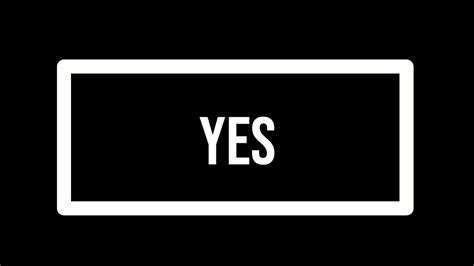
WHILE YOU’RE HERE –
PLEASE HELP US TO GROW FREMANTLE SHIPPING NEWS
FSN is a reader-supported, volunteer-assisted online magazine all about Fremantle. Thanks for helping to keep FSN keeping on!
** Don’t forget to SUBSCRIBE to receive your free copy of The Weekly Edition of the Shipping News each Friday!
